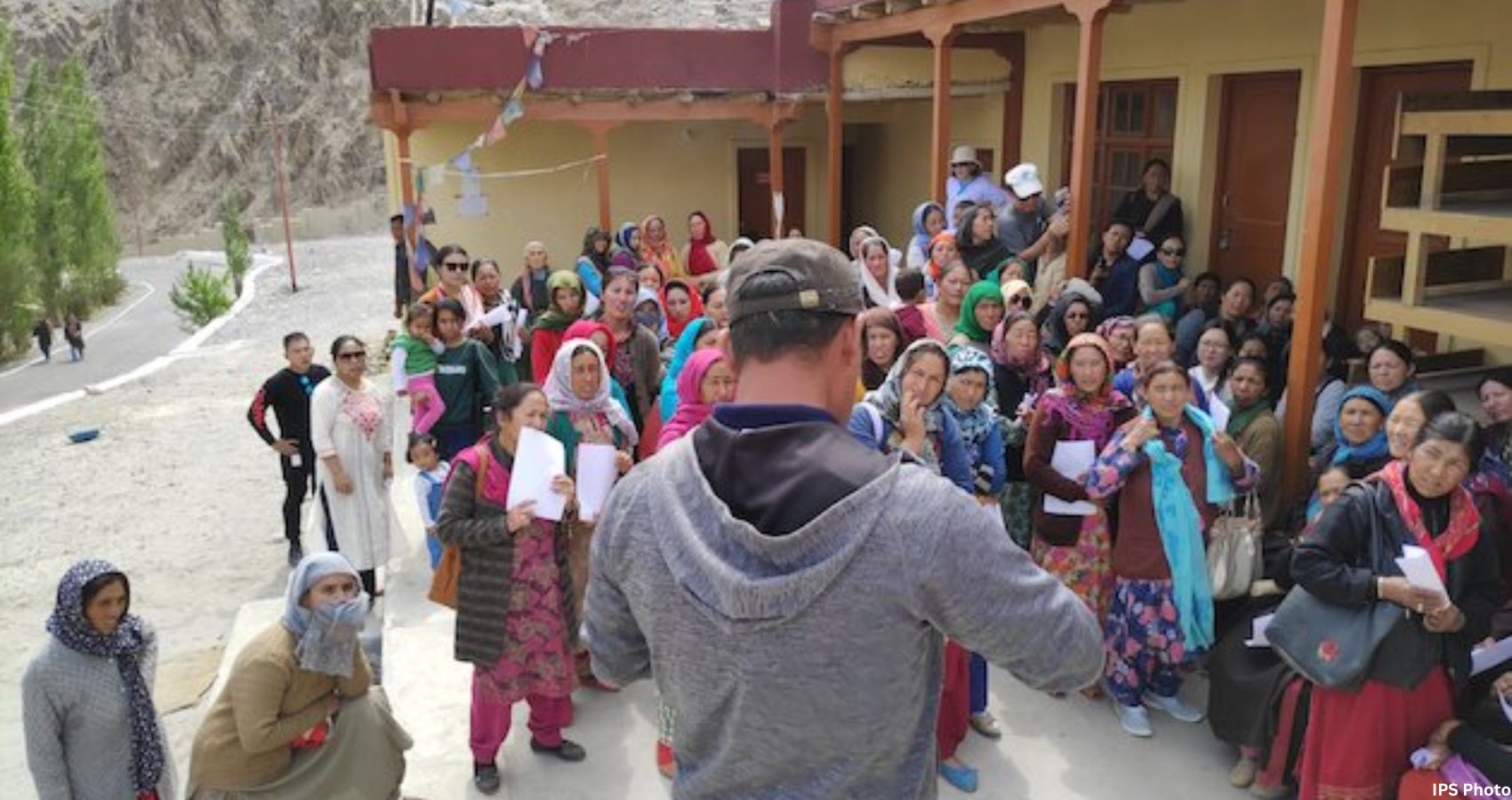In the early stages of his medical career in southern India, Nordan Otzer, an ENT surgeon now in his mid-40s, received a life-altering call from his home in the Ladakh Himalayas. This call sparked his commitment to cervical cancer awareness, a cause that became deeply personal.
Otzer recounts the distressing moment when his mother’s health deteriorated, revealing a silent battle with cervical cancer. Despite experiencing persistent spotting and abdominal pain, she only sought medical help when the pain became intolerable. This delay, unfortunately, proved fatal. Otzer reflects, “My mother’s death due to cancer altered the course of my career, leading me to make the choice to remain and contribute to my own community.”
The World Health Organization (WHO) highlights that over 95% of cervical cancers are caused by the human papillomavirus (HPV), emphasizing the importance of early detection and prevention. The WHO recommends screening for HPV infection starting at 30 years of age, with regular screenings every 5 to 10 years.
Cervical cancer stands as the fourth most common cancer among women globally, with a substantial burden in low- and middle-income countries. In 2020, an estimated 90% of the 604,000 new cases and deaths occurred in these regions, emphasizing the urgency of addressing this issue on a global scale.
Otzer’s personal tragedy fueled his determination to make a difference in Ladakh, a remote mountainous region at an altitude exceeding 14,000 feet. Since 2009, he, along with local supporter Stanzin Dawa and visiting doctors from Singapore, has organized over 140 awareness and screening events, reaching out to women in villages scattered across challenging terrains.
“We have conducted screenings for 12,400 women thus far, among whom one out of every 10 women has precancerous lesions,” Otzer reports, underscoring the critical need for timely treatment to prevent the progression to full-blown cancer.
Beyond the logistical challenges of reaching remote areas, Otzer encountered cultural barriers. Ladakhi women, initially reticent about discussing women’s health openly, hesitated to undergo checkups. Otzer recalls, “Women in Ladakh tend to be reticent about discussing women’s health matters openly, not even with their own family members.”
However, with persistence, the community became more receptive over time. Initially avoiding eye contact and refraining from asking questions, Ladakhi women gradually started attending screening camps, breaking down the stigma surrounding cervical cancer.
In the context of India, cervical cancer ranks as the second most common cancer in women, contributing significantly to the global burden. The Indian Ministry of Health and Family Welfare aims to vaccinate 68 million girls against HPV by the end of 2025, followed by an annual vaccination of 11.2 million girls aged 9 and older.
A December 2021 study published in Springer reveals that cervical cancer accounted for 9.4% of all cancers and 18.3% (123,907) of new cases in India in 2020. It remains a leading cause of cancer-related deaths in women, particularly in low- and middle-income countries.
The study emphasizes the alarming situation in rural areas where women, often illiterate and unaware of cervical cancer hazards, face scarce healthcare resources. The availability of medical infrastructure and awareness play pivotal roles in preventing cervical cancer, as confirmed by a study in the Asian Pacific Journal of Cancer Prevention.A Lancet study from October 2023 exposes disparities in cervical cancer survival across India, with higher rates in urban areas boasting better healthcare facilities. The study calls attention to the importance of addressing inequities in the healthcare system, highlighting the need for awareness, early detection, and improvements in healthcare infrastructure.
Otzer’s journey from personal tragedy to community empowerment illustrates the transformative impact of raising awareness about cervical cancer. By breaking down cultural barriers and overcoming logistical challenges, Otzer and his team have made significant strides in Ladakh, offering hope for a future where cervical cancer is detected early, treated effectively, and lives are saved.
https://www.ipsnews.net/2023/11/this-doctor-helps-himalayan-women-ward-off-cervical-cancer/

